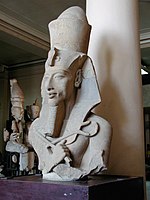
Photo from wikipedia
ABSTRACT This article provides a reappraisal of the history of proyectismo. Scholars have employed the concept to categorise early eighteenth-century Spanish authors and reforms, and have thereby severed them from… Click to show full abstract
ABSTRACT This article provides a reappraisal of the history of proyectismo. Scholars have employed the concept to categorise early eighteenth-century Spanish authors and reforms, and have thereby severed them from their historical context. This article explores the imperial origins of this political culture by shedding light on the generation of knowledge in early eighteenth-century diplomatic and imperial spaces. The article focuses on the overlooked thinker Álvaro José Navia-Osorio y Vigil, Marquis of Santa Cruz de Marcenado (1684–1732) – long considered to be a proyectista – and his appeal to the Spanish Republic of Letters to assist him in his project for a universal dictionary; an enterprise that predated Chamber’s Cyclopedia and Diderot and D’Alembert’s Encyclopédie. Marcenado’s contributions to the establishment of Spanish intellectual connections with foreign thinkers were, moreover, symptomatic of the political approach of early eighteenth-century ilustrados – transterritorial, transnational, and transversal thinkers who drew on the peninsula’s ties with the Flanders and Italy to revitalise the intellectual life of Spain. These thinkers recovered the study of Muslim Spain, and envisioned the establishment of councils and academies in Mexico and Peru. The Spanish Enlightenment, then, originated in the early eighteenth-century from their rediscovery of the Spanish Republic of Letters.
Journal Title: History of European Ideas
Year Published: 2019
Link to full text (if available)
Share on Social Media: Sign Up to like & get
recommendations!